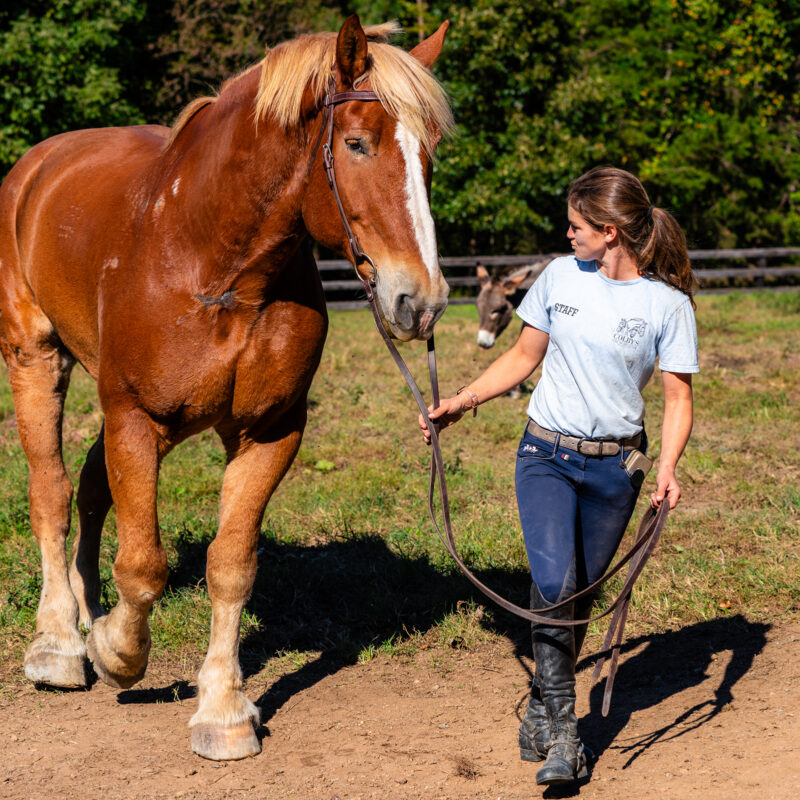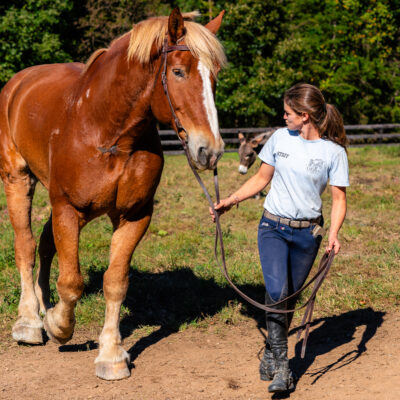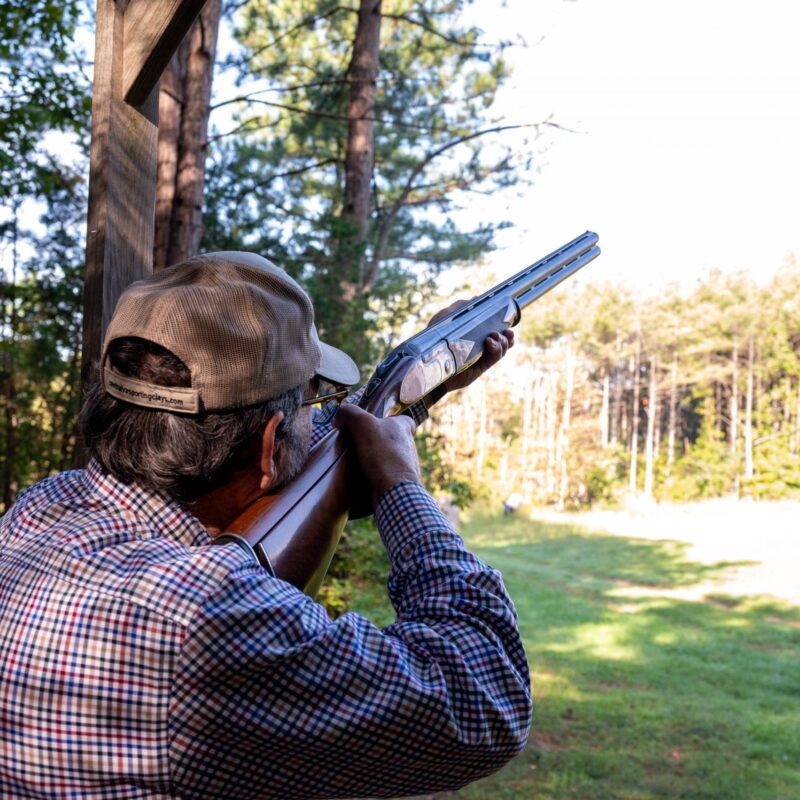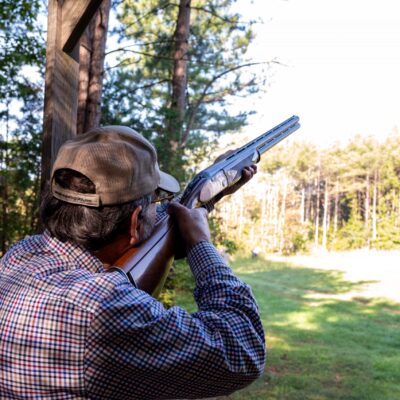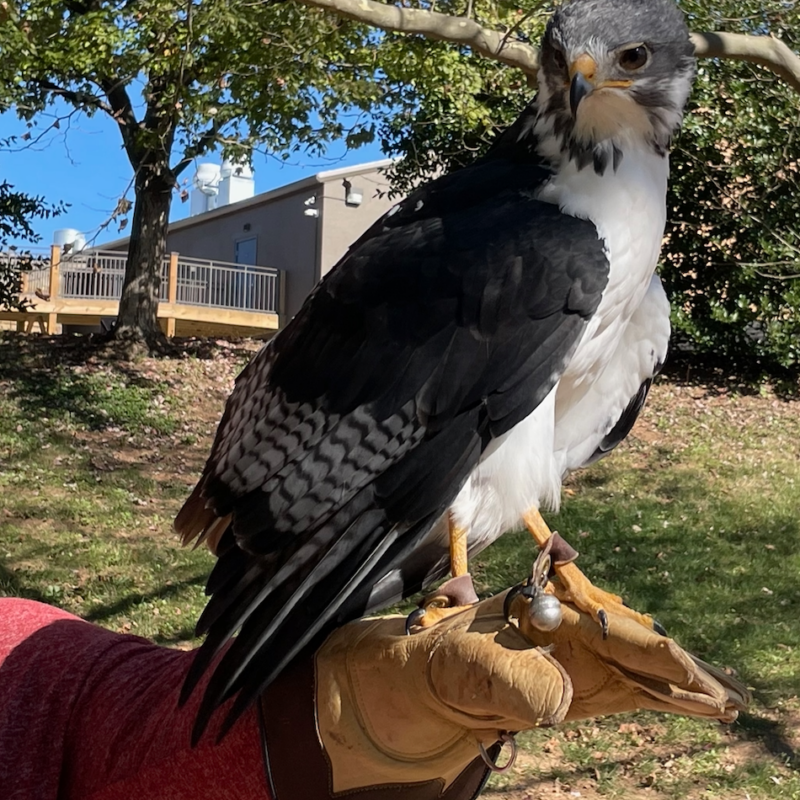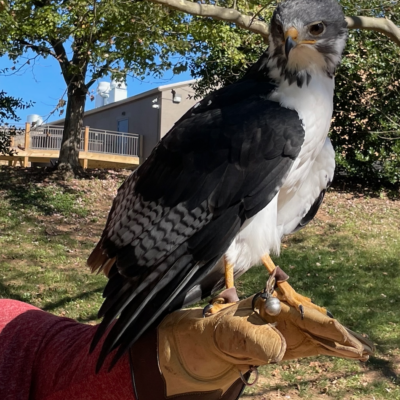“If it was about the money, I wouldn’t be here. I went from a high six-figure salary to just getting by.” Dominick Fioresi is explaining the allure of a two-year apprenticeship at Linden Vineyards in Fauquier County. He’s now in his second year after a 15-year career in Internet technology. “I was looking to learn from the master. I did my homework. Jim is very passionate about the winemaking. With Jim, it’s all about the wine, and I was going to learn from the Number One winemaker on the East Coast, bar none.”
|
Apprentices Dominick Fioresi, left, and Jonathan Weber join wine master Jim Law, right, on the porch at Linden Vineyards. “Looking at a bigger scale,” says Law, “this apprenticeship is something that’s been lost. We’re not craftsmen anymore. Now we’re focused on getting higher degrees and it’s not applicable to everything.” |
The Jim in question is Jim Law, legendary back-to-the-lander, borderline curmudgeon, and much-admired hero in Virginia winemaking. As another pioneer has told me, “I never had a bottle of his wine I didn’t love.”
After years of classroom teaching, the advent of the highly selective apprenticeship program (only two apprentices at any given time—and they must commit to staying in the Virginia industry) seems inevitable for Law, a champion of old-fashioned values and purity in winemaking. Where winemaking has joined the league of the credentialed, spawning college courses, certificates and advanced degrees, Law believes in a hands-on training sequence that starts with apprentices, moves through journeymen, and results in masters (among which, after 30 years of winemaking, he rightly counts himself). “I taught for decades and found it frustrating that people who had an intensive 16 hours in the classroom thought they knew it. There was no evolution. And they produced pretty mediocre wines.
“I think you have to have a deeper understanding,” he adds.
Thoughtfulness is a watchword for Law, who prizes (and makes!) wines that are “intellectual, long-lived and pair well with foods.” Indeed, on the afternoon I visited Law and his pair of apprentices—Jonathan Weber was three weeks in, at that point—they took their seats at a well-appointed yet modest table for the daily 4 o’clock “blending trial.” The atmosphere became nearly convent-like at one stage, as four Petit Verdots—candidates to fill out the mid-palate of the 2009 Hardscrabble Red— were blind sampled. “In order to taste objectively, you need to be quiet and taste under the same conditions,” Law said.
While he may not be unique in his seriousness of purpose as a winemaker or even his aversion to additives in the winemaking process, Law is in the minority among Virginia winery owners in keeping his operation closed to weddings, Bar Mitzvahs, whathaveyous. The sign at the bottom of his hilly road, situated in some of the most beautiful countryside your urban narrator has ever enjoyed, states “No buses, no limos, no groups larger than six.” Looking for a party? Head up the road a stretch.
But for those seeking a serious wine experience, Linden is a magnet. “This is very soulful, very healthy,” says Fioresi, despite the fact that his work has included, besides obsessively tending to 22 acres of vineyard and racking wine in the tank room, “taking the trash to the dump and changing a toilet seat.” He adds that he’s been surprised to discover—first-hand, of course—the degree to which you have to mind the details in a vineyard and winery. “I don’t think half the people realize the work it takes to be successful,” he says.
Characteristically, Law eschews a formal application process. He relies on word of mouth to find apprentices. He asks for a letter about a prospect’s interests, including what wines he or she likes. He even claims that he wouldn’t mind if the answer were Yellow Tail, “as long as they can say why.”

